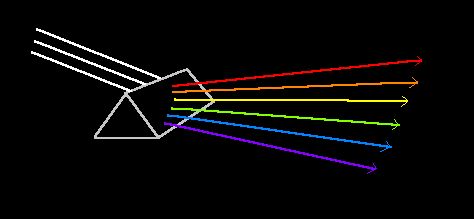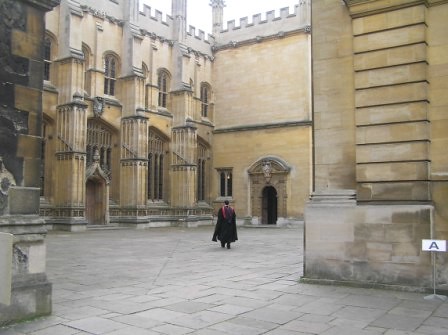I read Pannapacker's 2003 piece as a second-year M.A. student, and, at the time, it rang hollow. I was convinced I was one of the few who would beat the odds, and, more importantly, I simply wanted to be in graduate school. I found the work -- reading, writing, thinking, teaching -- more satisfying than what I believed my other options to be. And I had a partner, family, and good credit to make the absurdly low pay I earned as a TA and later adjunct a mere insignificant inconvenience.
What I didn't understand at the time was the correlation between my willingness to work for less than a living wage and the dearth of "real" jobs every new Ph.D. has faced for decades -- a shortage exacerbated beyond all acceptable proportions by the recession. Pannapacker didn't make this correlation clear in his original or subsequent articles, until this most recent one. Even if he had, I'm not sure that, years ago, I would have digested its significance. I'm not sure I could have separated my in-the-moment desire to be part of an academic community from the impact the exploitation of contingent faculty had and has continued to have on the profession more broadly -- and that it would have on me as an individual later.
Doing "satisfying" work seemed like more than enough compensation. And, as I've said before, I think that very few people, myself included, who have completed Ph.D.s can look back and say -- whatever they may be doing now -- that graduate school was a waste of time, that it wasn't worth it, that they should've just gone on and done something else with that particular decade of their lives.
At the same time, what Pannapacker's most recent article does, finally, make clear is that it is impossible to ignore the correlation between the role graduate students play in providing undergraduate education at minimal cost to universities and the dearth of jobs they themselves will eventually face as they finish their degrees and seek full-time employment.
What Pannapcker has finally gotten around to saying is what I've been saying since my very first blog post, and again here, here, and here (not to mention numerous comments on other people's blogs). That is, I've been saying, as Pannapacker now does: Just. Walk. Away. As long as there is a supply of graduate students and recent graduates (because they hope for something better) willing to work for a pittance, colleges and universities have no reason not to continue A) admitting them to programs whose sole purpose is the supply of underpaid labor and B) paying them far, far less than they are worth -- and far, far less than they will need to support themselves and their families in the long-term. Ultimately, institutions have a vested interest in the status quo, while we (graduate students and recent Ph.D.s) do not. Organizing is a good thing, yes, but it's not enough. Institutions will never change until they have to -- and don't be fooled by the claim that the humanities don't make money for colleges and universities, that, were we all to walk away right now, humanities departments would simply shut down. The humanities are at the core of most undergraduate education programs. If there was a shortage of people willing and able to teach Freshman Comp, Intro to History, and Foreign Language I and II, institutions would find a way to attract talent. With money.
Our fault has been to love what we do too much and to be too willing to make sacrifices that are neither in our own future best interests nor in the best interests of the future of the profession -- nor in the best interests of colleagues who may be less able to sustain an existence as contingent faculty members after they graduate than we may be. Really, do we want a future in which everyone is an adjunct? Because, with the ever-increasing elimination of tenure-track and otherwise full-time positions, that's where we're headed.
And it's right that someone should start pointing this out to prospective and current graduate students -- that it's not just all about you and what you're willing to do on the cheap for the privilege of doing "satisfying" work for a few years. While I'm sympathetic to the response to Pannapacker expressed here, I believe that, once you understand this correlation, it is both selfish and unethical to continue to perpetuate the falsehood that graduate students are themselves not, to some degree, responsible for the current state of the profession.
I take responsibility for my choices, and that's why, once I came to understand my own complicity in perpetuating an exploitative system, I chose to walk away -- that and the fact that I believe our society needs to reckon with the discrepancy between SAYING a college education matters and PAYING for its true cost.
Leaving academe doesn't mean you don't love the life you're leaving behind. It need not mean a betrayal -- because you and your colleagues and your students are the ones being betrayed when you remain complicit with the current system.You can reinvent yourself career-wise on the outside and still pursue your intellectual interests. And you can find ways to teach -- to share your love of literacy and learning -- while still making a decent living and without continuing to perpetuate a broken system.
If you are a tenured professor or a professor on the tenure track, stay, if you like what you do. Do whatever you can to improve the working conditions within your own department, within your institution. Your students need you, and you are only a part of the problem if you ignore it. Because you have tenure (once you have it), you have the capacity to be part of a solution. Take action. Use your position to work for the best interests of the profession.
But, if you are an adjunct? No. The ethical thing to do, once you understand how the system works, is simply to walk away. If you stay, you will be taken for granted. You will be used up and disposed of for a pittance.
Walk away. You owe it to yourself, your students, and the future of the profession.Your talents do have value; and, eventually, those who need to understand this will.
 |
| Via |










